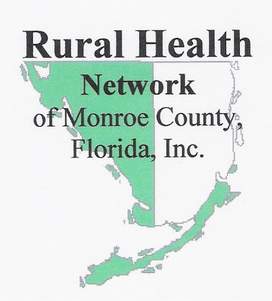County allows funding modification
to help save school health program
BY TERRY SCHMIDA
The Board of County Commissioners (BOCC) voted unanimously at its July 15 meeting to allow the Florida Keys Area Health Education Center (AHEC) to re-purpose a $50,000 grant, in order to keep its popular school health program alive for a second year.
While the move was appreciated by AHEC’s CEO Michael Cunningham, the gesture was only a partial approval of his request: Cunningham had been hoping the BOCC would slide his organization an extra $20,000 to help offset a $100,000 funding shortfall precipitated by Gov. Rick Scott’s budgetary veto pen.
“[Scott] vetoed us,” Cunningham said. “We’re out of the budget. Now we’ve had to move beyond the legislative process.”
According to Cunningham, the Monroe County School Health Primary Care Program, which debuted last school year, provided more than 36,000 services for 3,767 patients, over the course of 6,900 client visits.
No-cost primary care services were provided to students, their siblings, and even some uninsured parents. Occasional School District employees also availed themselves of the services, with AHEC billing their insurance companies.
All this was accomplished with $250,000, utilizing two full-time medical providers and one visiting MD at clinics located at Key Largo School, Coral Shores High School, Horace O’Bryant School and Sugarloaf Shores.
“It went over extremely well,” Cunningham said. “It got great reviews from the parents and children we saw. [The funding cuts weren’t] due to the fact that we didn’t have a great program. It was more politics than anything.”
The cuts were a bitter pill for the AHEC chief to swallow, as he was hoping to expand the program to three full-time providers in six clinics. So, Cunningham has been on a mission to rustle up money from alternate sources – including money from the county’s Human Services Advisory Board that had been earmarked for a child day care program. Plans to expand the school health program will cost more than $100,000 over last year.
Superintendent of Schools Mark Porter indicated at the BOCC meeting that the District was looking at stepping in to fill part of the funding void, by way of its health insurance monies.
“We found this program to be incredibly important and effective for us,” Porter told the commission. “We have many children, particularly in Key West, actually, that cannot access healthcare. And these clinics provided that . . . Once we saw the capacity of them we were able to also open them up to our employees to some degree . . . We don’t want to see this program go away.”
However Commissioner Sylvia Murphy raised a point some of her colleagues could not, ultimately, ignore.
“I have no problem allowing Mr. Cunningham to swap his money from one segment to the other,” she said. “I have a problem with the $20,000, not because it’s a lot of money, but because there are probably 40 other nonprofits out there who, in one way or another don’t have this year what they were counting on or what they had last year . . . It’s going to open a door we don’t want to see opened. Kids are important, but so are the elderly.”
Commissioner Heather Carruthers told Cunningham she understood his frustration with this year’s state budgetary process.
“This is just another one of those cost shifts where everybody in Tallahassee thinks they’re saving money,” she said, when they’re actually just forcing municipalities to pick up the tab.
Cunningham has a $115,000 grant from the South Florida Health Foundation, but still needs to raise another $250,000 by the beginning of August. Should he fail, the $115,000 grant would go away.
“Right now we’re digging into our own pockets,” he said. “But we’re still looking to the community.”
[livemarket market_name="KONK Life LiveMarket" limit=3 category=“” show_signup=0 show_more=0]




No Comment